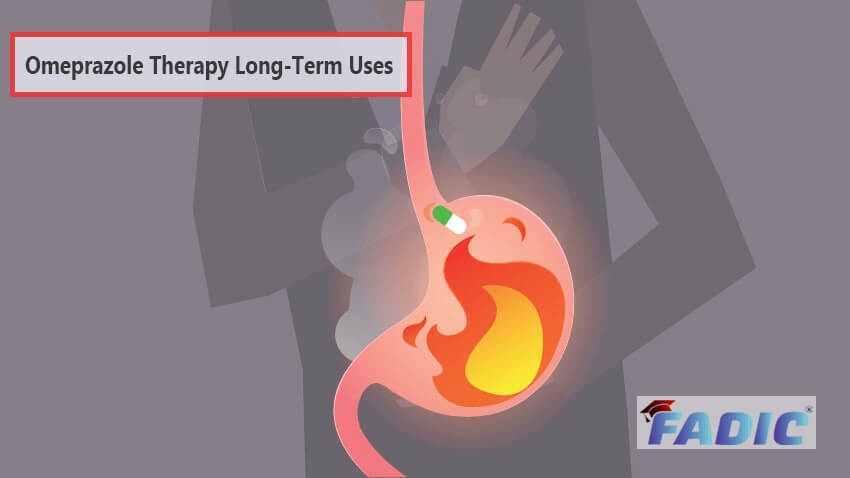The 7 Important Long-Term Uses of Omeprazole Therapy

The 7 Important Long-Term Uses of Omeprazole Therapy
- Omeprazole is one of the most widely prescribed drugs s internationally used in the treatment of gastroesophageal reflux disease, peptic ulcer, and other conditions.
- It is caused by excess stomach acid. Omeprazole (Prilosec, Zegerid) belongs to the group of drugs called proton pump inhibitors.
- It decreases the amount of acid produced in the stomach. As well as its needed effects.

Omeprazole may cause unwanted side effects that require medical attention especially in long-term use:
- Atrophic gastritis: Long-term omeprazole therapy has caused atrophic gastritis (identified by biopsy.
- Carcinoma: In long-term (2-year) studies in rats, omeprazole produced a dose-related increase in gastric carcinoid tumour. Gastric polyposis has been reported in three of eleven patients treated with long-term omeprazole therapy (20 to 40 mg daily). Hyperplastic and fundic gland polyps developed in the stomach of these patients.
- Clostridium Difficile-associated diarrhoea (CDAD): Use of proton pump inhibitors (PPIs) may increase the risk of CDAD, especially in hospitalized patients; consider CDAD diagnosis in patients with persistent diarrhoea that does not improve. Use the lowest dose and shortest duration of PPI therapy appropriate for the condition being treated.
- Fractures: Increased incidence of osteoporosis-related bone fractures of the hip, spine, or wrist may occur with proton pump inhibitor (PPI) therapy. Patients on high-dose (multiple daily doses) or long-term (≥1 year) therapy should be monitored.
- Use the lowest effective dose for the shortest duration of time, use vitamin D and calcium supplementation, and follow appropriate guidelines to reduce the risk of fractures in patients at risk.
- Hypomagnesemia: Reported rarely, usually with prolonged PPI use of >3 months (most cases >1 year of therapy). Maybe symptomatic or asymptomatic; severe cases may cause tetany, seizures, and cardiac arrhythmias. Consider obtaining serum magnesium concentrations prior to beginning long-term therapy, especially if taking concomitant digoxin, diuretics, or other drugs known to cause hypomagnesemia.
- Interstitial nephritis: Acute interstitial nephritis has been observed in patients taking PPIs; may occur at any time during therapy and is generally due to an idiopathic hypersensitivity reaction. Discontinue if acute interstitial nephritis develops.
- Vitamin B12 deficiency: Prolonged treatment (≥2 years) may lead to vitamin B12 malabsorption and subsequent vitamin B12 deficiency. The magnitude of the deficiency is dose-related and the association is stronger in females and those younger in age (<30 years); prevalence is decreased after discontinuation of therapy.
Read More:
Copyright ©: All content on FADIC Website, including medical opinion and any other health-related information, and drug Informtation is for informational purposes only

 Log in
Log in Sign up
Sign up
